Important Fire Alarm Tech Tools
Multi-Meter

The Multi-Meter is probably one of the most valuable items in your tool bag. Knowing how to use it properly is very important. Metering for DC Voltage and Resistance is the most common application, you can also use it to check wire continuity, but don't cheap out on your meter. Treat that thing like it is your child!
Multi-Tool Screwdriver

Having a Multi-Tool Screwdriver is extremely important because you absolutely never know what you are going to find out in the field. For most applications, a standard 6-in-1 screwdriver should do the trick, but in more rare instances, extra tools may be necessary, such as oddly sized hex heads, and sometimes Torx style screw drivers too.
Tamper-Proof Bit Set
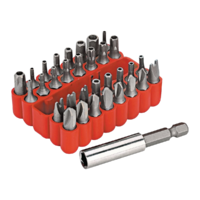
A tamper-proof screwdriver set is very important for sprinkler devices. Regular testing should include functional testing of the water-flow switch and tamper switches, but should any of these ever need to be serviced in any way, you will need to have the special tool to open it up.
Crimp Connectors / Crimps
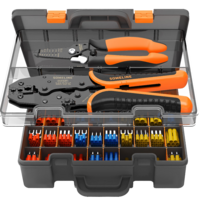
All kinds of crimp connectors (and wire nuts for that matter) as well as crimping tools will ensure you have everything you need in the event any crimped wires should need to be replace. The most common place you will find wire crimps are on battery leads of the main fire panel, booster panel, or basically anywhere you can find a fire-alarm battery. These often need to be replaced when battery corrosion occurs, or if the crimp has been worn down to where it is too loose.
Remember: You need to work with all kinds of low voltage wire, and sometimes even the high voltage. Be sure that when placing in a wire nut or a crimp, no metal is ever exposed. The insulation is there for a reason, and exposed wiring could cause a short circuit or ground fault. Neither of those are fun to troubleshoot.
Test Smoke & Test CO
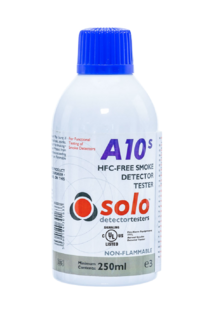
Test Smoke. Lots of it. When doing any inspections, most will often go through several of these cans a week. Per NFPA 72, functionally testing a detector is mandatory. Even if a smoke detector can activate with a magnet or test button, those features only test to see if it is reporting to the panel, but does not ensure proper functionality. Also note that CO test cans are available as well.
Jumper Wires
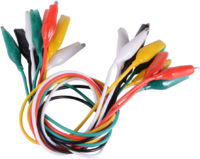
Jumper Wires are always going to be helpful to have around. When troubleshooting, they will help in shorting out a zone, temporarily bypassing a relay that cannot be disabled, and so many other uses you will discover along the way. Having them around will save a lot of time and headache.
KEYS!

Start collecting keys! Fire alarm keys can be purchased from online stores such as eBay, and often spares can be found on job sites. I would not suggest relying on any site to provide keys for you. Every brand has a different key, and sometimes multiple keys are necessary in one building. A heavy key ring is a reliable one!
Don't forget hex wrenches! Some pull stations, such as the BG-12, use a hex wrench to reset rather than a real key. Luckily, we are moving away from that for the most part. And some pull stations like the EST 270-SPO's use flathead screws to open.
Smoke Test Poles
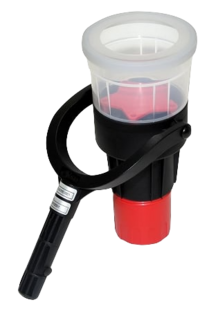
Test poles of all kinds are important. The most common items include the Solo 330, which uses smoke cans, and the Solo 365, which uses smoke cartridges. Either one of these, or comparable product by another brand, are great options for testing smoke detectors of just about any brand. This unit paired with a strong extension pole makes testing high up detectors very easy!
Heat Test Poles
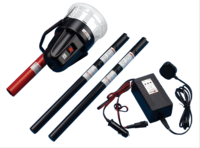
The heat detector tester, similar to the smoke detector tester, will also pair up nicely with an extension pole, allowing you to functionally test heat detectors that allow for rate-of-rise, resettable operation. It's important to note that some conventional heat detectors will pop if they get too hot, and cannot be reset. For more information on that, check out this page.
Ladders
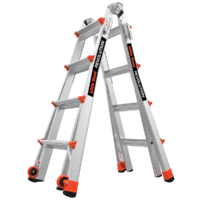
Then of course, ladders. For different job sites, different ladders will be necessary. Sometimes a 3 foot, sometimes an 8 foot, but then of course we have our other applications. Pictured is the "Little Giant" ladder, which is fairly heavy, but can be small when needed to be small, or extend very tall where it's necessary. Regardless of the kind of ladder you have on hand, always be sure it's the right one for the job, and use it safely.
Drill
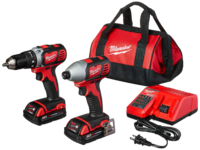
A standard drill, and even maybe a dremel and drywall saw, is a good thing to have around should any service call require one. Cordless drills are recommended, so be sure to keep any batteries charged up at all times. If you aren't an installer, chances are you won't need to be making holes in the wall too often, but that's not to say it'll never happen, because it likely will.
Vacuum
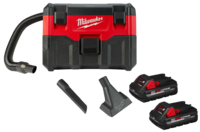
Speaking of making messes with drills, it's a good idea to keep a small shop vac in the truck so that in the event any of your work leaves a mess around your customer's site, you can clean that up for them nice and quick.
Extension Cord(s)
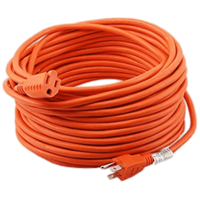
With power tools comes the need for power. Bring an extension cord with you. There is not always going to be an outlet in a close, convenient location. You will find that an extension cord will also help you keep your phone, tablet, or laptop charged up through out the work day as you enter in your paperwork.
Spare Parts
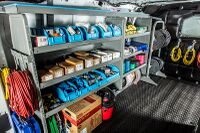
Finally, always keep your truck full of common spare parts. You never know when you may need it. Detector not working? I'll replace that right now. Horn/Strobe broken? Good thing I have one that'll sync with the rest!
Common parts to carry would be, pull stations, smoke detectors, heat detectors, modules, horn/strobes, FPL wire of different gauges, screws, conduit and fittings, and of course - batteries. Remember to carry both conventional, and addressable devices that are compatible with the systems you may encounter.
Other
These are just the basics, but you will find so many important things to have on hand all the time, such as a tablet or laptop. Pen and paper may be a good thing to have on hand. Think of all the little things, because being prepared for anything will make your life much easier out in the field. Keep your truck clean and organized so you can find whatever you need quickly. Try not to keep the customer waiting!

